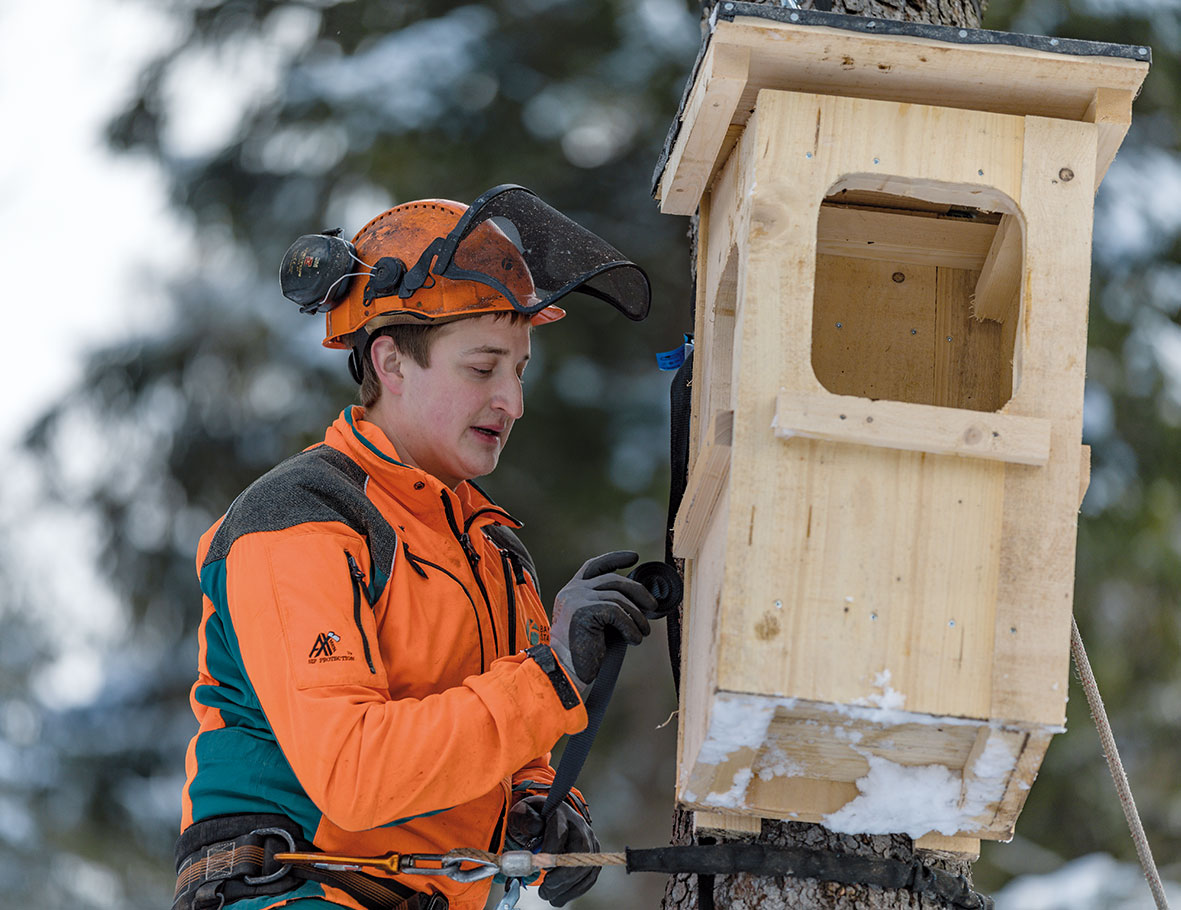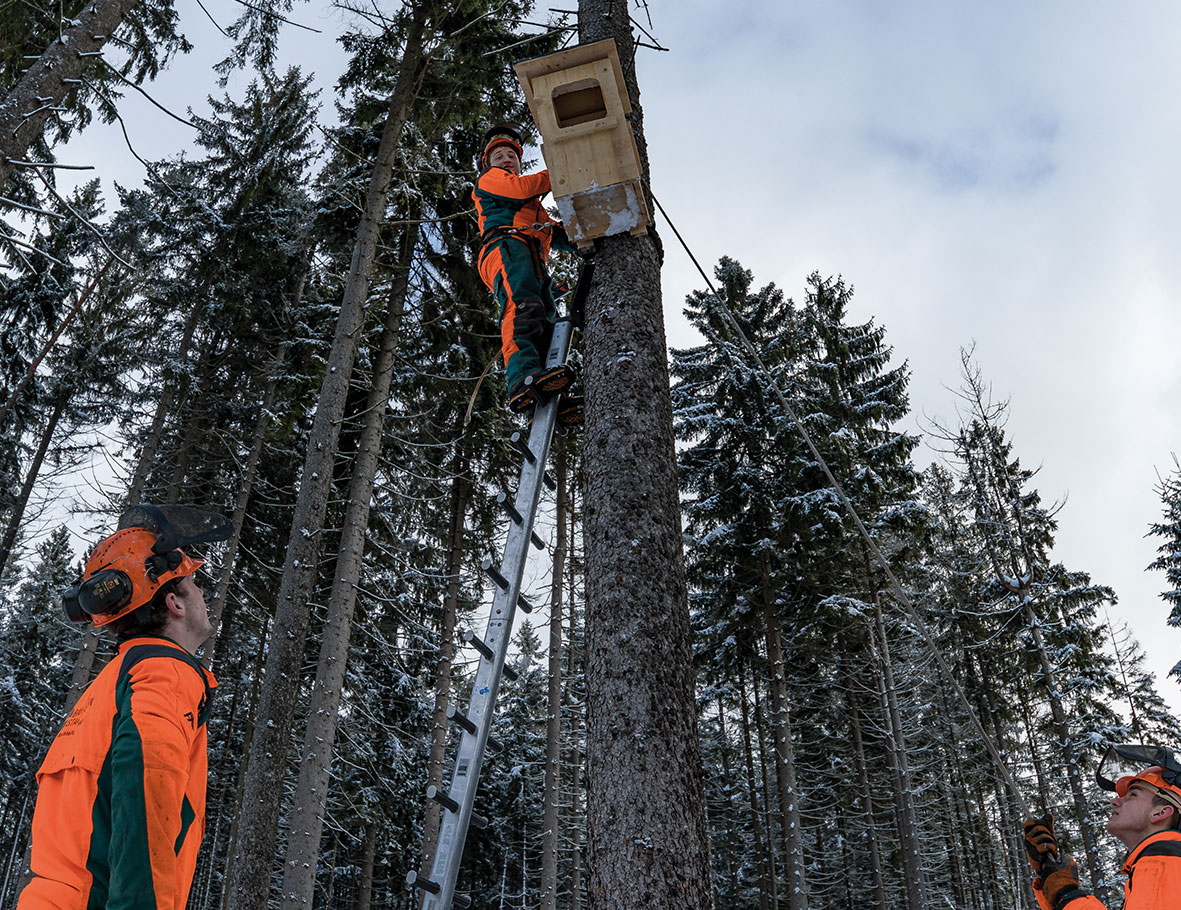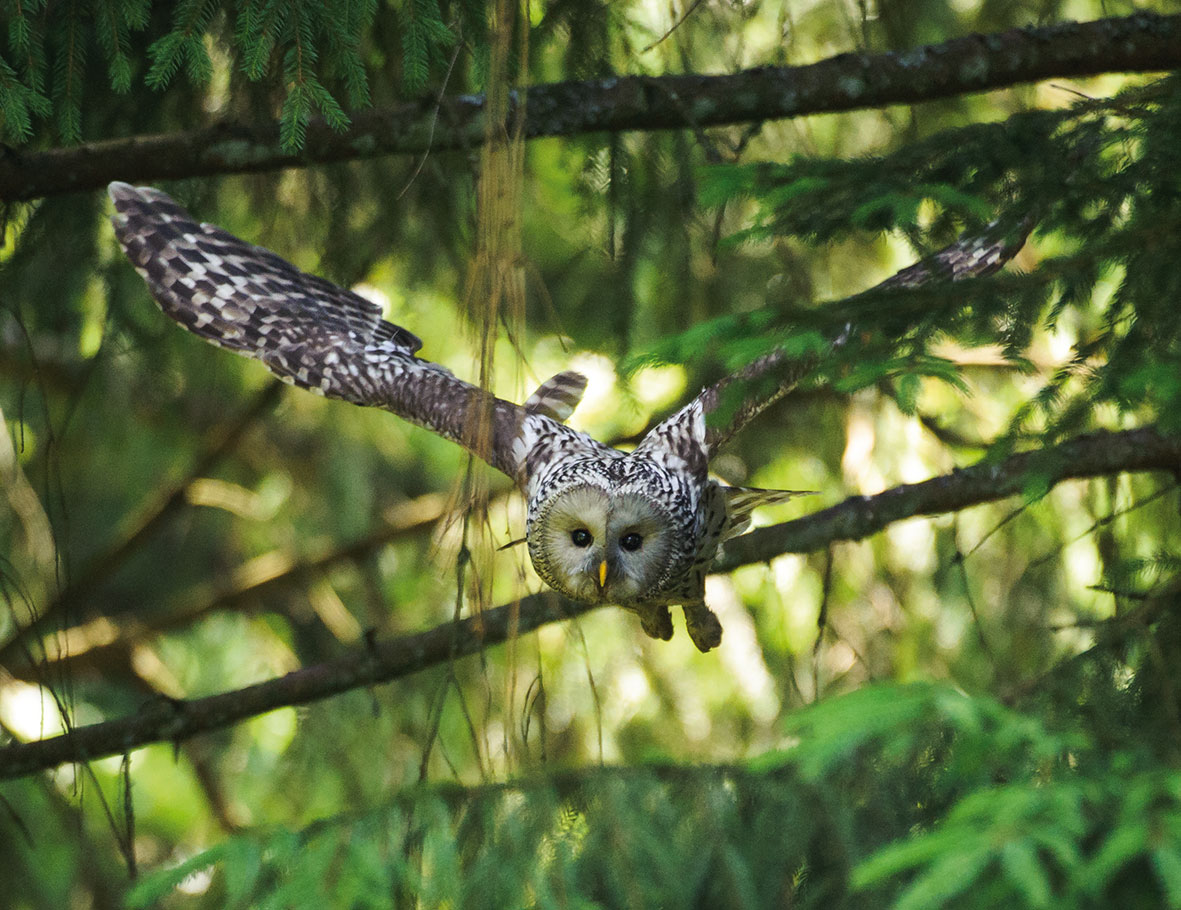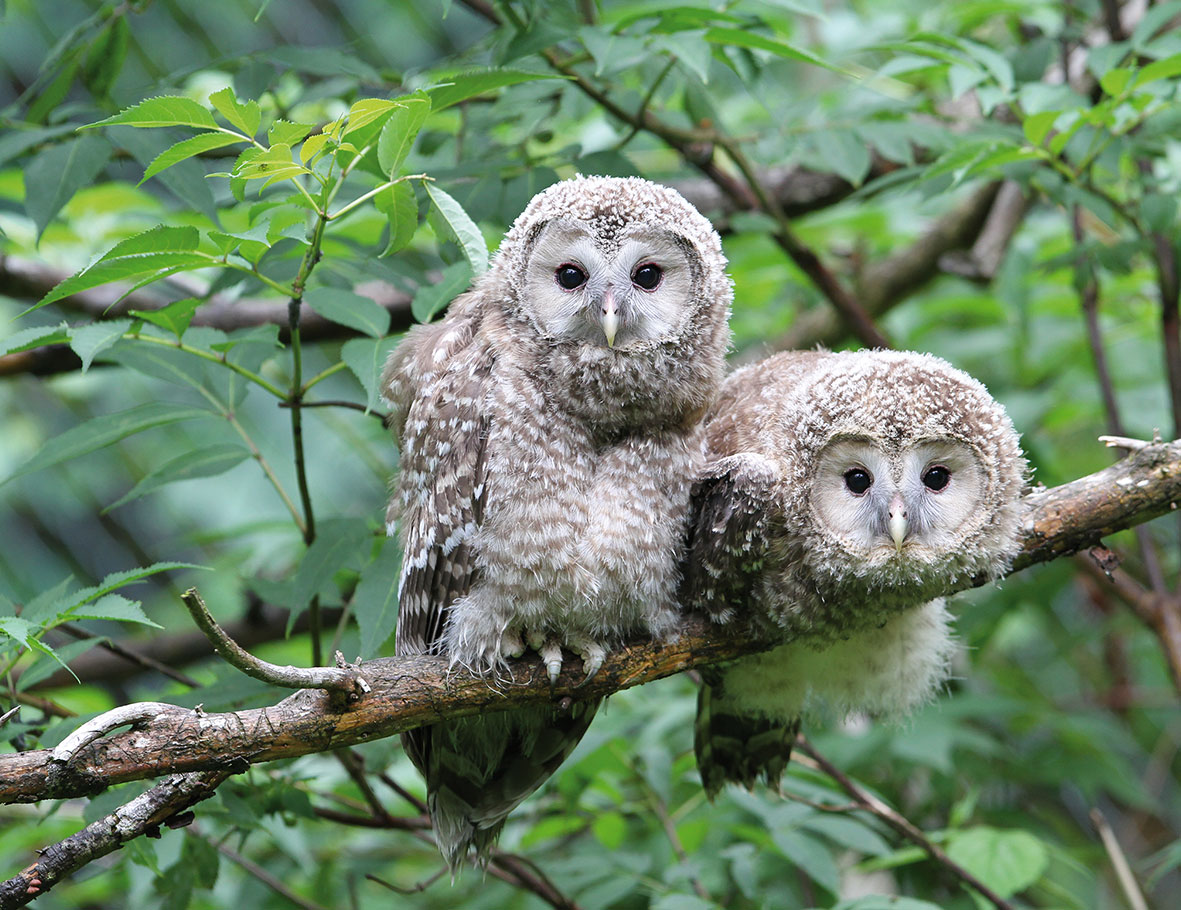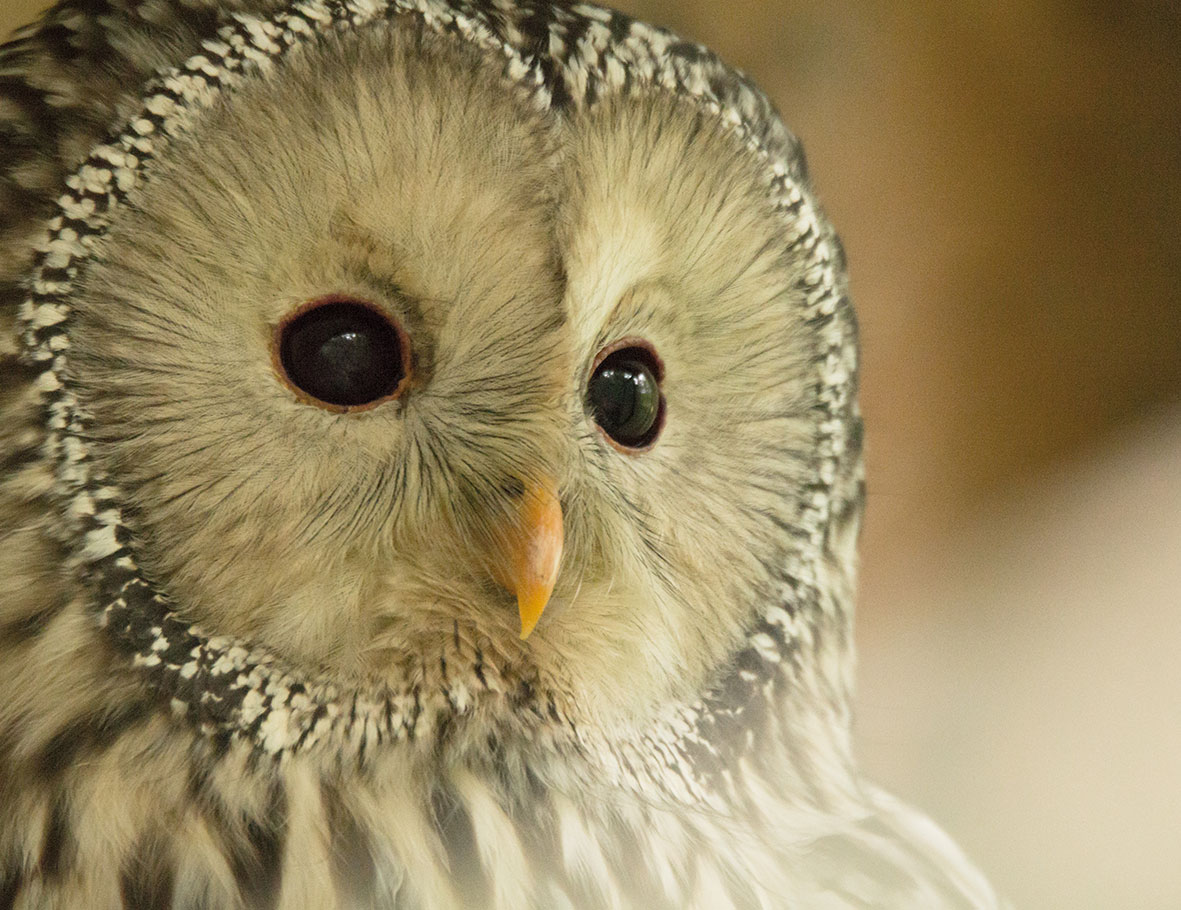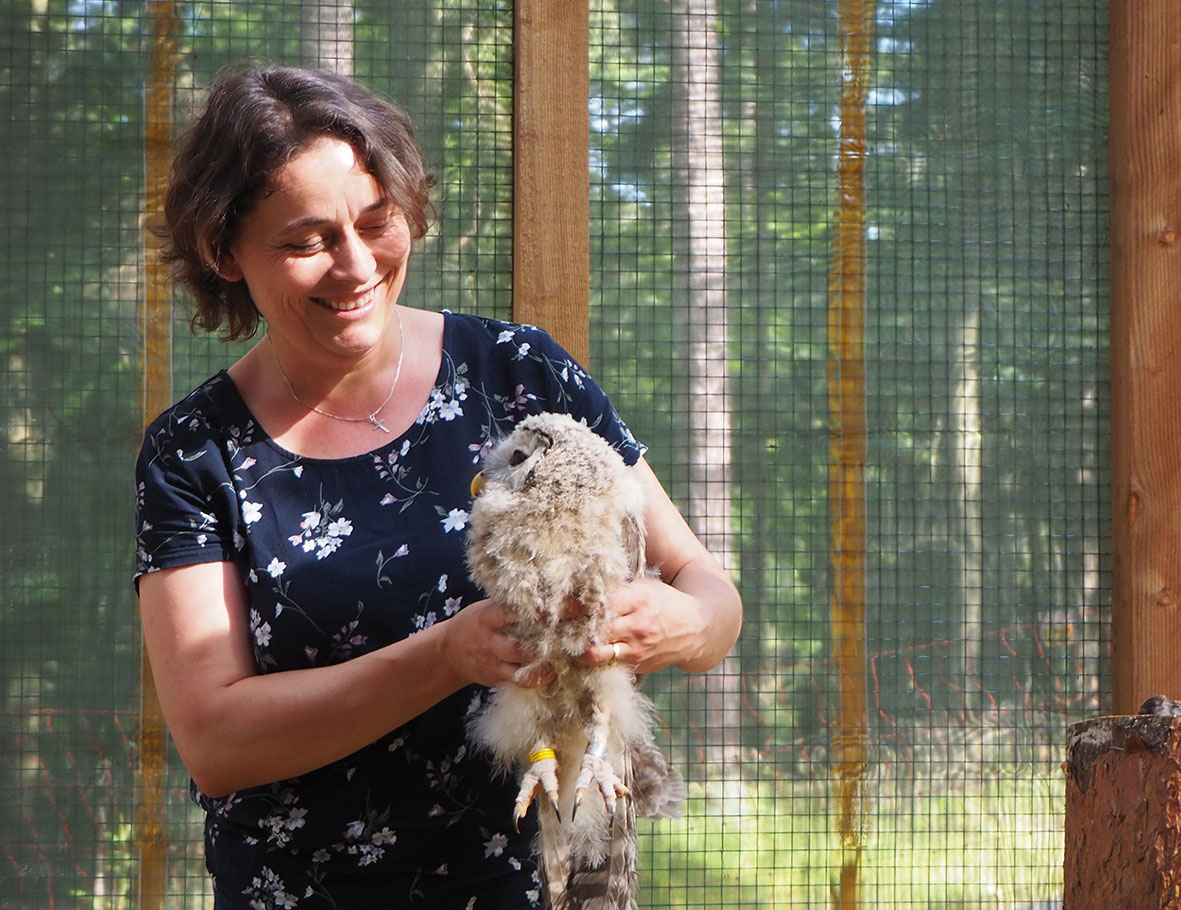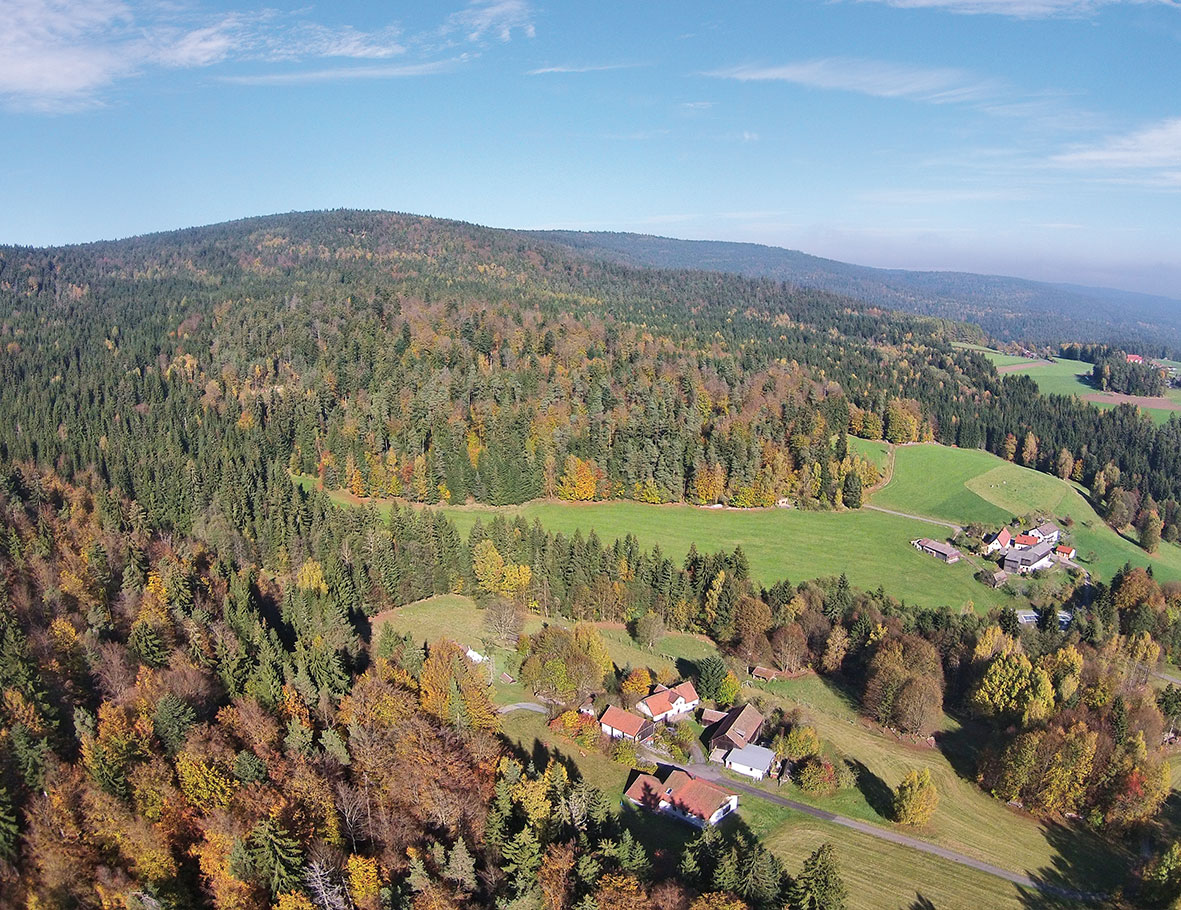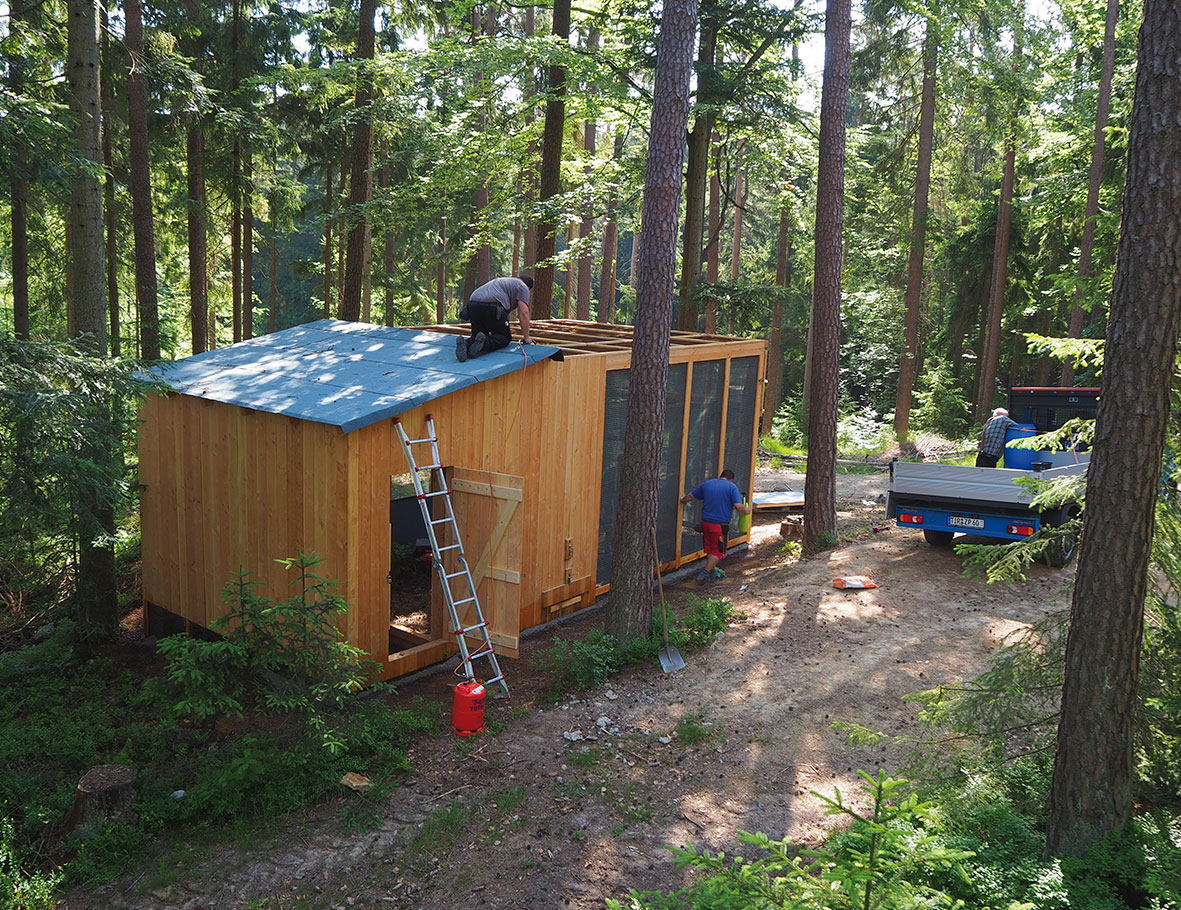Bavaria, Oberpfalz
Rescue of a Rare Forest Dweller: The Ural Owl
At the beginning of the 20th Century, the Ural owl (Strix uralensis), still bred in the forests of the eastern Bavarian-Czechoslovakianborder range. It has disappeared since then – eradicated by humans. Meanwhile, however, enormous efforts are being undertaken to resettle this species. The Academy is lending its assistance to this project.
Johannes Bradtka, director of the Academy for Nature Conservation and Landscape Management (ANL), describes the project:
“The last of its kind was probably shot in western Bohemia in 1926. Although its main source of food was only mice, the owl was considered a “harmful predator” and was rigorously hunted. In addition to the pursuit by humans, the form of forest management at that time also led to its elimination. Dead and rotten trees were removed for fuel and smaller and larger open areas in the forest fell victim to reforestation. Many older mixed forests were furthermore transformed into dense spruce monocultures. All of this eventually led to the ultimate extinction of this wonderful species in central Europe. Long after the eradication of bears, wolves and lynxes, still another far less shy predator disappeared from our woods.
We were thus overjoyed when we received the permission in 2016 from the government of Upper Palatinate to reintroduce the Ural owl. A longer period of planning and preparation had gone before. The core area of the reintroduction project comprises the Steinwald Natural Park, the northern Upper Palatinate Forest, and the southern Fichtel Mountains. These landscape regions belong to the historical range of the Ural owl. The thinly populated, densely wooded region is relatively sparsely split up by roads, villages and agricultural fields. The natural requirements for resettlement success are thus fulfilled.
The main objective of the project is to establish a small population which can survive without human help. Eventually, this area should spread along the northeast Bavarian and northwest Bohemian Central Mountains towards the southeast and interconnect with the spatially and genetically isolated groups in the Bavarian-Bohemian Forest.
The project will be realized with the help of the following cooperation partners: the Academy for the Protection of Zoo Animals and Wildlife, the Heinz Sielmann Foundation, the German Order of the Falcon, and the Bavarian State Forest. In the past three years we were given a total of 18 young Ural owls from renowned zoological institutions. Prior to their release into the wild, they were acclimated in spacious forest aviaries in their new habitats for about four weeks. At the same time, we installed circa 140 large nesting boxes at appropriate locations in the forest. They should augment the existing natural breeding possibilities - snags and stable dead wood - and accelerate the breeding success and the spreading of the Ural owl. In order to improve the structural elements typical for the Ural owl, we started to work together with the forest owners to create open spaces, stable standing dead wood and high snags in the forest or to enhance existing structures.
The project will additionally benefit bird species, bats, lichens and moss as well as saproxylic mushrooms and insects, which are all dependent on dead wood. The public interest and the resonance received to the resettlement are extremely positive. Forest owners, hunters and the general public were informed ahead of time and are kept up to date of the important project phases. Within only three years we were able to confirm an initial Ural owl territory.”



